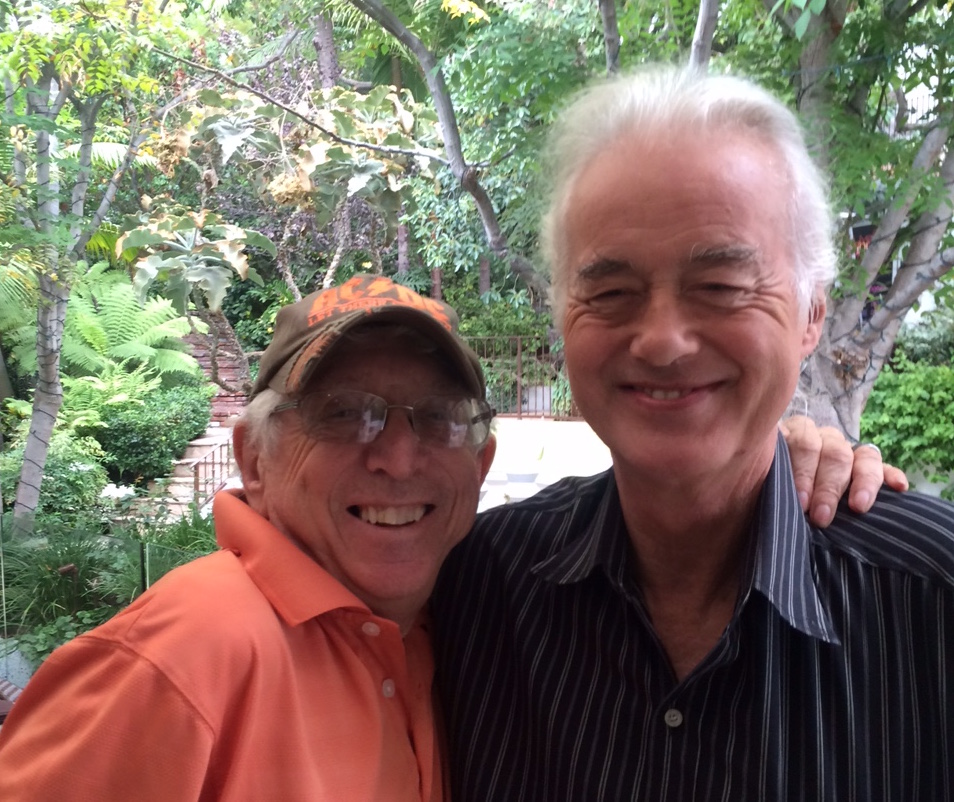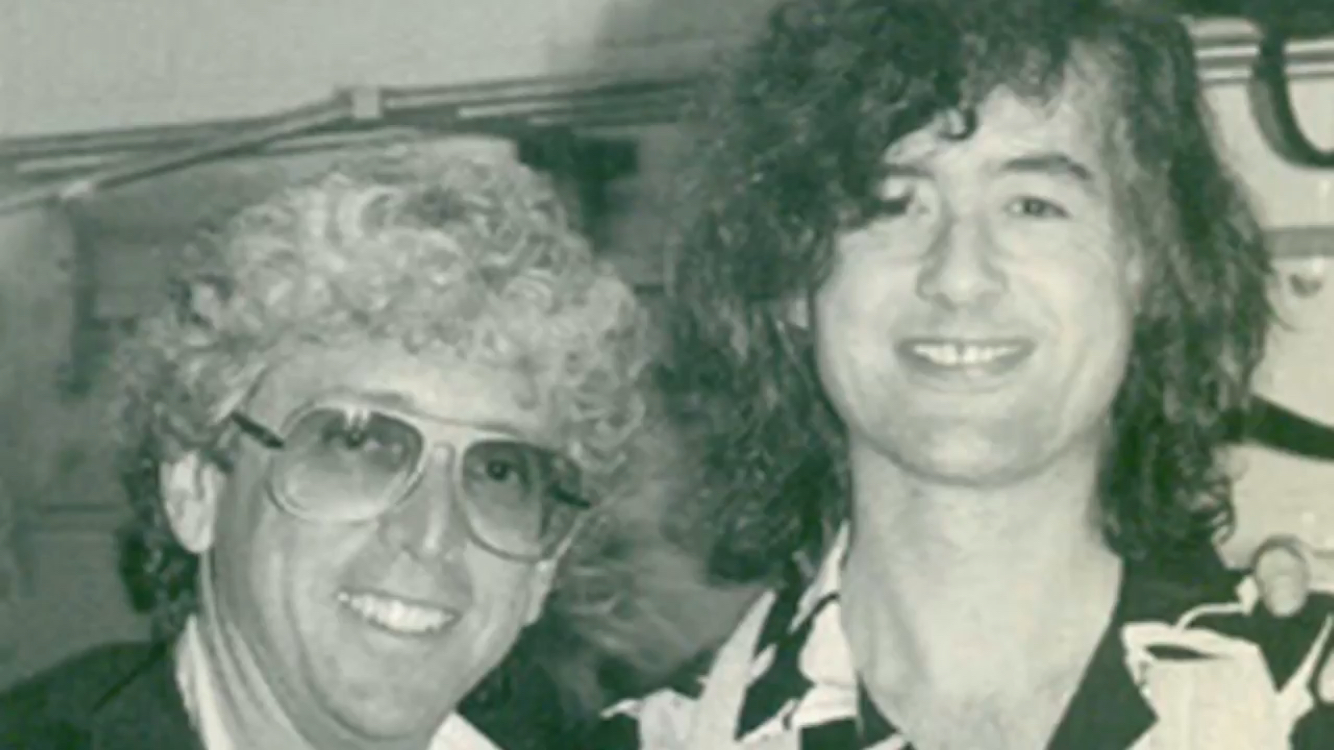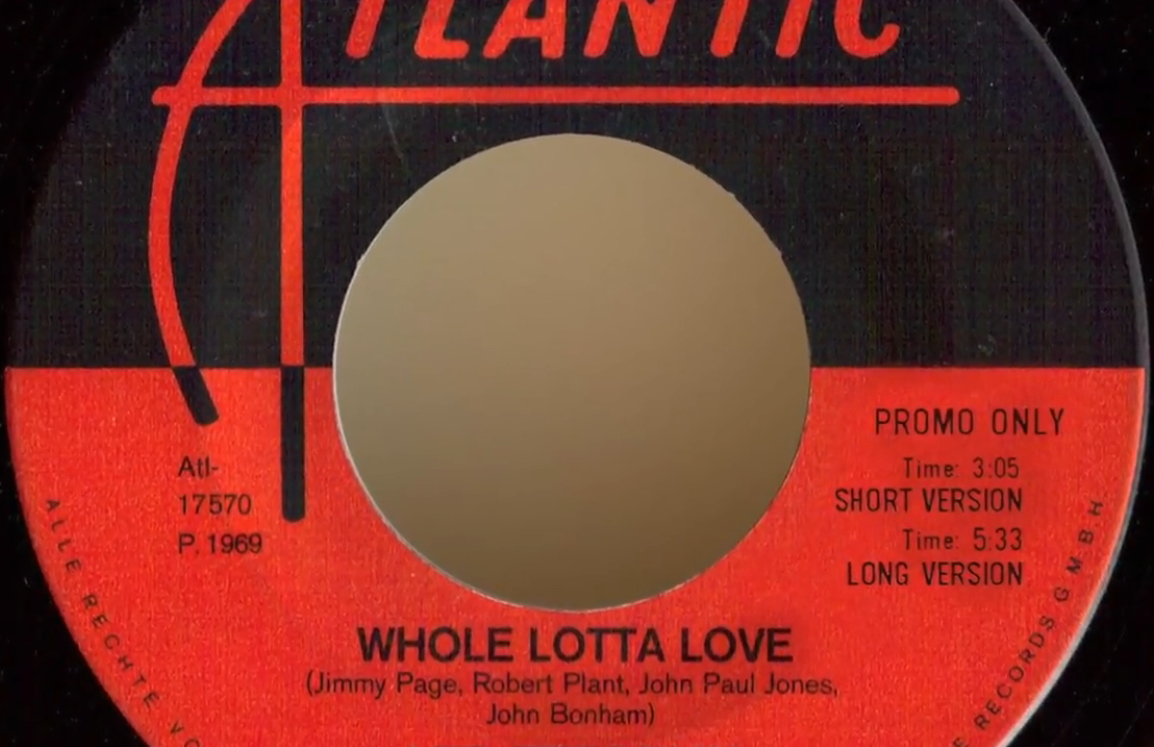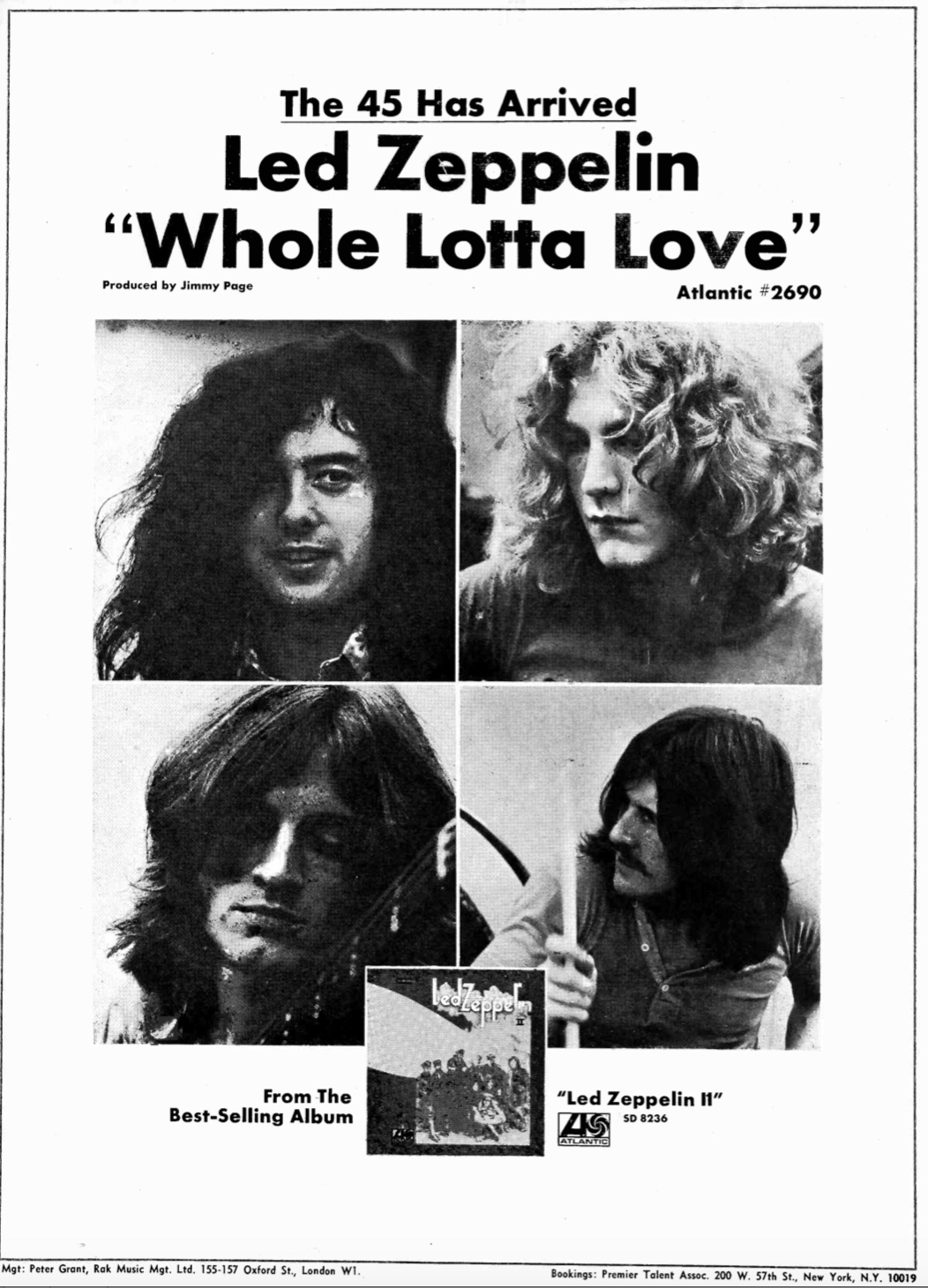How Led Zeppelin Were Convinced to Release ‘Whole Lotta Love’ as a Single
by Greg Brodsky
Jimmy Page with former Atlantic Records President Jerry Greenberg (Photo: Jerry Greenberg archives; used with permission)
Any Jimmy Page sighting is a good sighting. And though we’d prefer it to be onstage or in a recording studio, we’ll take what we can get. Like this photo, for instance, of Page grinning broadly recently with a fellow whom you might not recognize. It’s the guitar legend pictured with his friend of more than five decades, Jerry Greenberg. Who, you ask? In 1974, at age 32, Greenberg was named the President of Atlantic Records, the youngest president of a major U.S. record label.
Greenberg oversaw Atlantic’s day-to-day operations during what many will define as the bullseye of what we now call the classic rock era… the 1970s period that spearheaded the development of superstar rock bands like Led Zeppelin on FM radio and led to huge album sales and arena and stadium tours.
Greenberg has published a highly entertaining 2024 book, Whole Lotta Music: How I Made Grammy Winners and Hall of Fame Rock Stars, with inside stories of many of the acts he either signed and/or had a huge hand in their development—including Foreigner, ABBA, and Genesis—among dozens of others that he worked closely with. It’s available in the U.S. here and in the U.K. here.

Greenberg and Page in an undated picture from the 1970s (Photo: Jerry Greenberg archives; used with permission)
While Greenberg didn’t personally sign Led Zeppelin–that was Atlantic’s legendary producer Jerry Wexler–he helped establish the band’s legacy. When their second album, Led Zeppelin II, was released in October 1969, the group didn’t have any history at Top 40 radio.

The 3:05 AM radio edit of “Whole Lotta Love”
“All of a sudden, there’s a track, ‘Whole Lotta Love’ which is getting enormous exposure on FM station,” says Greenberg.
As the label’s head of radio promotion at the time, Greenberg recognized that the song wouldn’t be an AM radio hit at its existing 5:33 length because it didn’t fit the shorter lengths that were essentially required by Top 40 programmers for their format.

An ad for the single in the Nov. 22, 1969 issue of Record World
Once the band and its manager, Peter Grant, gave their OK, Greenberg suggested a fairly drastic edit, trimming the single to a more “manageable” 3:05. Says Greenberg: “I put the record on the turntable, put the needle down. I watched the clock and at 2:45 they happen to be at the hook… ‘I wanna whole lotta love… whole lotta love…’
“I just faded the song out,” he says, by significantly reducing the song’s instrumental portion while retaining part of Page’s masterful solo. They put it out on November 7, 1969, and in Greenberg’s words, “the record explodes,” ultimately reaching #4 in the U.S. (and #1 in several European countries).







7 Comments so far
Jump into a conversationI believe the black & white photo above with Jerry Greenberg and Jimmy Page is from the mid 80’s, not the 70’s.
He signed some great bands over the years. Looking forward to his documentary.
Thanks for the note, Wes. We’ll check with Jerry to see if he can pinpoint when it was taken.
“Whole Lotta Love” by Zep is one of my all time favorite records, but articles like this should always say that most of the song was written by Willie Dixon and he didn’t get credit or pay until he sued in 1985.
That was always a beef with the people who knew of the original black bluesmen–“The Lemon Song” grabbed a chunk of the original “Killing Floor” though they did re-style it in a major way. But the intro to “Bring It On Home” was straight-out rip from the original. Kind of like the issue they got sued by Spirit over–if you hear it they stole the intro to “Stairway” from them, of course the rest of the song is All Their Own.
The Spirit / Stairway plagiarism case was always bogus and rightfully failed (the original jury didn’t even get to hear the actual recordings). Still, it’s ironic that it was a White group that got to bring a lawsuit to court while all the Black artists Zep “appropriated” from have been ignored.
This was just one Whole Lotta Love 45. The other Atlantic release had the full song & Living Loving Maid as the b side. I know–I have it.
Wow! The story I always heard was that Zep didn’t want a single version of the song. I always heard that the label went ahead and put out the single with the shorter version, without the band’s permission.